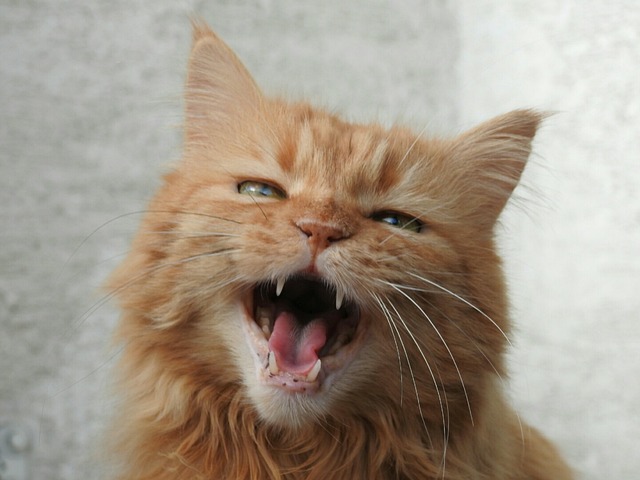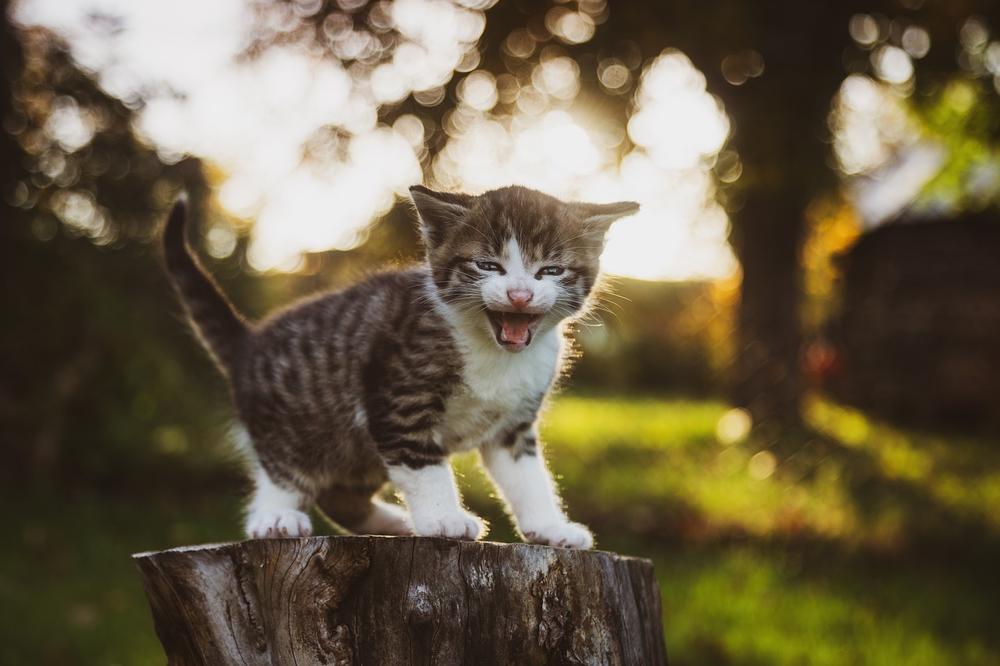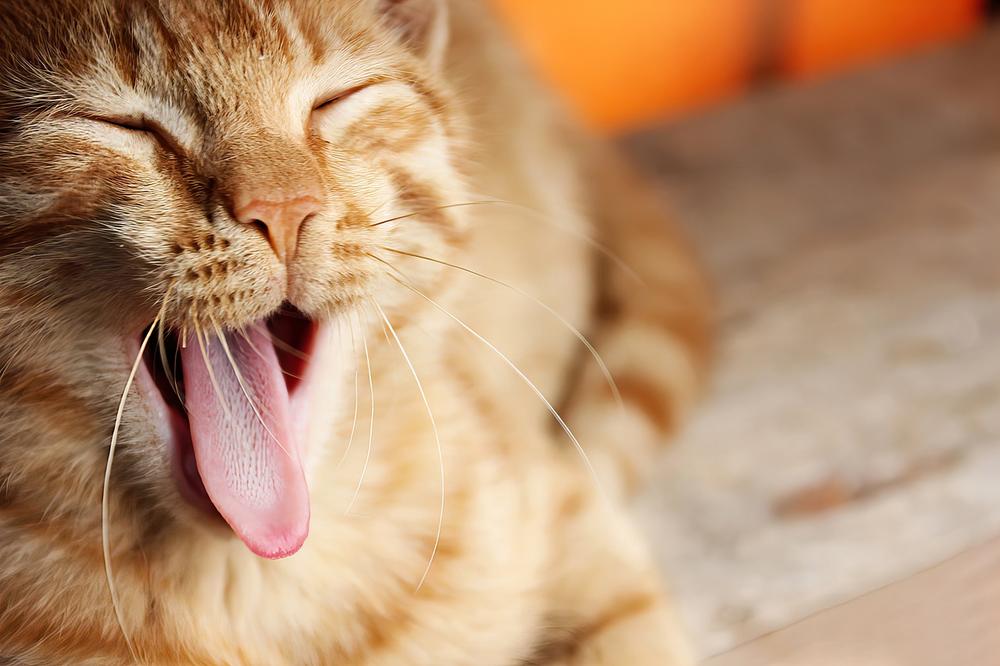Why Won't My Cat Shut Up? How to Silence Excessive Meowing

Admit it:
Your ears are ringing, your head is pounding, and your patience is wearing thin. That incessant meowing from your feline friend has pushed you to the edge.
But fear not, my friend, because in this I Care for Cats guide, I'll reveal the secrets to finally getting some peace and quiet. 😺
Let's silence that noise, shall we?
Common Reasons Why Your Cat Won’t Stop Meowing
So you've got a cat that just won't stop meowing, huh?
Well, there's probably a bunch of reasons for that.
Here are some possible explanations and solutions that might help you out:
- Maybe your cat just needs a bit more mental stimulation. You know, like toys or stuff that can keep their mind busy. Puzzle toys and environmental enrichment can do the trick, distracting them from all that excessive meowing.
- Or maybe they haven't spent enough time with humans. If they haven't been properly socialized, they might be meowing away to get attention or show they're uncomfortable. Spending quality time together can build trust and make their meowing go down a notch.
- Cats, oh boy, they sure love attention. They're true attention-seekers. Giving them regular playtime and some TLC could reduce their constant need to meow their hearts out.
- Sometimes it's all about protesting something. Cats don't always like changes in their environment or routines, so they resort to meowing as a way to say, "Hey, I'm not happy about this!" It takes patience, my friend. Give them time to adjust and offer reassurance.
- Anxiety or stress can also be big factors here. Just like us humans, cats can feel anxious too. Identify what's causing their distress and create a calm and soothing environment for them. Think gentle music, scents, or special pheromone diffusers.
- Oh no, aggression or agitation! Excessive vocalization is one way aggressive behavior can come out. In these cases, it's best to consult an animal behaviorist who knows what they're doing. They'll dig deep and figure out the root cause.
- And lastly, cognitive instability or behavioral issues could be at play here. Medical conditions or age-related decline can lead to more meowing than usual. Your best bet would be to take your cat to the vet, get a proper diagnosis, and explore treatment options.
Whatever you do, don't punish your poor cat.
It won't solve the problem—it might even make it worse.

Instead, focus on tackling any health or behavior issues at the core. Also, give that fuzzy ball of joy some mental stimulation. Trust me, it'll help reduce the excessive meowing and create a happier home for both of you. 😺
And if you're wondering why your cat always wants your attention during mealtime, I've got the answers for you.
In my article, discover why your feline friend may be adamant on having an audience while eating and explore potential reasons and solutions.
Take a deep dive into Why Does My Cat Want Me to Watch Her Eat, where you'll uncover valuable insights tailored to address this behavior.
Trust me, you won't want to miss it.
My Cat Is in Heat and Won’t Shut Up
If your female cat is in heat and won't shut up, don't fret.
There are ways to help alleviate her anxiety and reduce excessive meowing during this time.
Here's a list of practical tips to help you manage your cat's behavior:
- Use calming pheromone sprays: These sprays can release pheromones that mimic the natural scent of a mother cat, providing a sense of comfort and security for your cat.
- Provide distractions: Engage your cat in interactive play with toys or use puzzle feeders to keep her entertained and channel her energy into constructive activities.
- Create a safe space: Set up a quiet area where your cat can retreat and feel secure. This can be a separate room or a cozy corner with her bed and favorite toys.
- Consider spaying: Spaying your cat is a permanent solution that can prevent future heat cycles and reduce mating behaviors. Consult with your veterinarian to discuss the best timing for this procedure.
Excessive noise during heat is normal and part of your cat's natural behavior.
With some patience and the right strategies, you can help create a more comfortable environment for both you and your feline friend. 🔥
But how exactly can you understand what your cat is trying to communicate through their meows?
It's fascinating to uncover the different tones and patterns they use, especially when considering how cats selectively choose to meow to elicit reactions from us humans.
Let's delve into the intriguing world of feline vocalization together!
Understanding Your Cat’s Vocalizations
Paying attention to your cat's meows helps you understand their emotions and needs. Different tones and patterns convey different messages. Vocalization levels vary among breeds, so don't expect all cats to be talkative. Meowing is a primary way for cats to interact with humans and get attention.
Understanding Your Cat’s Vocalizations can be a key step in addressing excessive meowing.
Observing your cat's meows is crucial to determining their specific cues and needs. Take note of different tones and patterns of meows, as they communicate different emotions and desires.
By paying attention, you can develop a deeper understanding of what your furry friend is trying to convey.
Now, you must know that the degree of vocalization varies among cat breeds. Persians tend to be on the quieter side, while Orientals may be more chatty.
So, don't expect your cat to be a purr-fect little talker if they happen to be a Persian!
As kittens mature, they may rely less on meowing to communicate, especially if they have other cats around. Meowing becomes a primary method for cats to interact with humans and get our attention. Cats are clever creatures, and they've figured out that certain sounds can elicit a reaction from us.
Pay close attention to the pitch, duration, and frequency of your cat's meows.
These variations can hold different meanings and offer insights into your cat's mood or needs.
They might be requesting food, attention, or simply letting you know they're happy.
It's worth noting that some people believe cats possess an ability to interact with the supernatural world.
Whether this belief holds true or not, one thing is clear:
Understanding your cat's vocalizations is essential for building a stronger bond between you and your feline companion.
So, listen up and tune in to your cat's meows—they might just be saying something important!
If you've been frustrated by your cat meowing loudly at night, I have the solution for you. Check out my Stray Cat Meowing Loudly at Night guide to understand why this happens and how to address the issue. Trust me, you won't want to miss it!
But what can you do to address excessive meowing and help your cat find more constructive ways to communicate?
In the next section, I will share practical solutions and advice that you can implement to provide mental stimulation, create a stress-free environment, and redirect your cat's attention away from constant meowing.
So let's dive in and discover how we can make life with our feline friends even more purr-fect!
Engaging Environments and Mental Stimulation
To stop your cat from constantly meowing, create a stimulating environment for them.
Here's how:
- Give them cozy hiding spots like cat tunnels or boxes so they feel safe and secure.
- Install shelves or cat trees for them to climb and observe their surroundings.
- Use interactive feeding toys or puzzle feeders to challenge their minds during meals.
- Make sure there are high perches or cat trees where they can escape from other pets or simply relax up high.
- Keep the litter box clean to avoid stressing them out and provide a comfortable bathroom area.
- Put their bed or blanket in a quiet spot where they can rest and relax undisturbed.
- Consider using calming pheromone sprays or diffusers to create a relaxing atmosphere.
- Some cats respond well to natural herbal remedies that reduce stress and anxiety.
- Play soothing instrumental music or specially designed cat relaxation tracks to calm them down.
By following these strategies, you'll create a mentally engaging environment that reduces excessive meowing and improves your cat's all in all well-being.
Long story short: By creating a stimulating environment for your cat, you're already on the right track to reduce excessive meowing. But don't stop here! Further down the blog post, I'll share valuable tips on limiting external distractions for a calmer cat. Keep reading!
And now, let me share with you another important factor in stopping your cat's excessive meowing.
But did you know that positive reinforcement can be the game-changer you've been looking for?
Yes, by rewarding your furry friend's quiet moments and patiently waiting for those precious seconds of silence, you'll see a significant difference in their meowing behavior.
Yet, there's more to it... Let's dive deeper into this fascinating technique that will have you and your cat living in harmony in no time...
Effective Attention Strategies for Quiet Cats
You wanna help your shy little cat?
Here's a list of 12 tricks that actually work:
- When your cat behaves, praise 'em like crazy.
- Hand out treats and love when they're chill.
- Don't rush to give attention; wait for moments of peace.
- Break their habit of meowing by not giving immediate response.
- Get them a buddy or playmate to kill boredom.
- Play with 'em interactive-style, get involved.
- Spend quality time cuddling and grooming.
- Check if there are any health issues causing the excessive yammering.
- Follow a stable routine to meet all their needs.
- Set up a soothing scene with cozy tunes or scented spritz.
- Keep their brain busy with puzzle toys and treat-dispensers.
- Shower 'em with extra love, pats, and snuggles to make 'em feel safe.
If you try these moves, you can totally keep the incessant meowing in check and make your furry friend way happier and quieter.
And if you're looking for ways to further reduce your cat's excessive meowing, I've got another effective solution for you!
Limiting External Distractions for a Calmer Cat
Keep doors and windows closed to minimize external distractions.

This way, your cat won't get stimulated by outdoor noises or sights, and they'll be less likely to make excessive noise.
If you want to fulfill your cat's craving to venture outside, consider allowing them supervised outdoor time or creating a secure outdoor space for them to freely explore.
Silencing your feline friend: Final tips
- Excessive meowing can be caused by behavioral and environmental factors.
- Punishing the cat for meowing won't solve the problem.
- Excessive meowing may indicate underlying medical issues.
- Seeking professional advice and consulting a veterinarian can provide support.
- Female cats in heat may meow intensely, but spaying is a permanent solution.
- Different breeds of cats have varying degrees of vocalization.
- Meowing is a common way for cats to communicate with humans.
- Providing distractions and enrichment can help reduce excessive meowing.
- Managing stress and providing companionship can help calm a meowing cat.
- Allowing supervised outdoor time can satisfy a cat's desire to explore.
And that wraps up today's article.
If you wish to read more of my useful articles, I recommend you check out some of these: Cat Not Using Litter Box After Giving Birth, Why Does My Cat Purr and Bite Me, Do Older Cats Purr More, Cat Meowing Purring After Giving Birth, and Cat Hump Dog
Talk soon,
-Sarah Davis